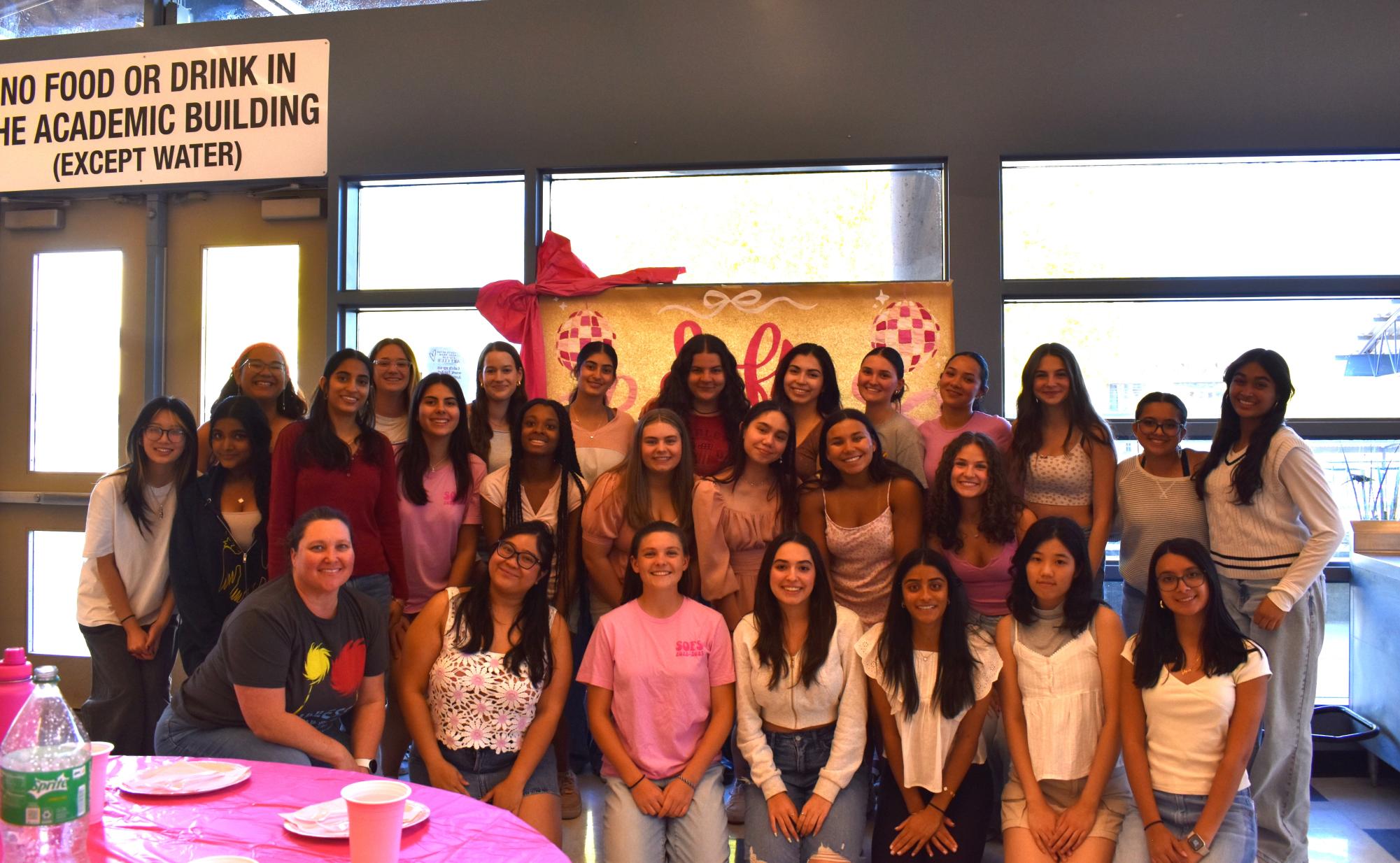From career-related interests to minor hobbies, OHS is home to a variety of clubs, two of which are prestigious in name: National Honor Society (NHS) and Society of Female Scholars (SOFS).
As national organizations, NHS and SOFS have a list of criteria students must fit into before being accepted. One major factor is that the student must be an upperclassman, while the other is that the student must be in good standing with the school, academically and behaviorally.
“The criteria is based off of those 4 pillars: scholarship, service, leadership, character. The application requires a minimum amount of points based on their high school experience,” said Carrie Anderson, NHS advisor.
NHS and SOFS differ from other organizations and clubs in that they are community-oriented. Instead of working to better themselves and their skills, they focus on giving back to their respective communities.
“I think NHS is just different in its focus. I think a lot of clubs here are focused on socialization and getting students to interact with each other and have fun, which is so great, and I think it’s awesome for clubs. But NHS is a little different, and the focus is more that service and being a good student as opposed to getting the students together,” said Savannah Nielsen, secretary of NHS.
SOFS, in particular, has a unique goal of bringing female scholars together within OHS. This allows a tighter bond in the club and allows them to plan events that are special just for girls.
“SOFS is a club to connect all these women in our school and promote learning and the role of women,” said Paras Dadiala, secretary of SOFS.
These institutions offer a variety of service opportunities, and although NHS focuses on society while SOFS participates in more female-oriented activities, they both strengthen students’ perspectives towards the community.
“We go around Arizona trying to help people from impoverished communities: [from] foster care homes to donating to children impacted by the LA wildfires,” said Maya Bustos, president of NHS and SOFS. “So the main mission of NHS is just to be able to spread positivity, give back to the community, and give someone a smile at the end of the day.”
NHS and SOFS allow students to develop lasting life skills individually. By holding monthly meetings instead of weekly ones, the organizations push students to be accountable for themselves in getting in service hours and events while also holding strict policies on attendance.
“It definitely keeps you accountable as a student, pushes you to make sure you’re maintaining your grades and being a good student because you have to be in good standing with the school in order to join. It also just pushes you to find those service opportunities and make sure you’re giving back,” Nielsen said.
By hosting events and community service, NHS and SOFS also enable students to meet more community-minded individuals and make connections with each other. This strengthens relationships within the clubs even if they do not get the chance to connect during meetings.
“We had a SOFS picnic. It just connected everyone in the club. There’s so many people, but it gave people the opportunity to introduce themselves and learn about each other. I also liked our one event we did was restocking pads and tampons in the bathroom because I know that it isn’t available for everybody, so it was just important to have,” Dadiala said.
Maintaining and running large organizations is difficult for both the advisors and the officers of the club, especially as these clubs continue to expand over the years. However, membership also allows them to arrange events and activities that are impossible to do in smaller institutions.
“The biggest challenge is mobilization, which is both a pro and a con. Because NHS has so many people, it’s very easy to both coordinate everyone into one event and also hard to get everyone to go,” Bustos said. “We know that people are obviously going to go to any event that we create because someone out of that 150-60 range is going to need service hours somewhere. But also… everyone is on their independent schedule because NHS is a more independent club than others, [which] poses a little bit of a challenge to our group event activities.”
This difficulty of mobilization may also limit the organizations from doing things outside of the box and force them to stick to more ordinary service opportunities. While just keeping the clubs running successfully itself is a difficult task to undertake, it is crucial to continue to expand the program as leaders.
“For me, one of my biggest goals was being able to one, collaborate with a different NHS school, and two, being able to go to impoverished communities to read books, which I guess for a lot of us, due to time restraints, was hard to coordinate. So that would be my biggest regret,” Bustos said.
While classrooms develop students intellectually, organizations like NHS and SOFS prepare students for the real world, molding them into empathetic individuals for the coming generations.
“The students that are in NHS are really good students, they are just good people with good hearts that want to make a difference, they want to be a leader, so it’s nice working with them,” Anderson said.



